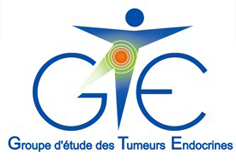EVACEL
- Type d'étude :
- Phase II
- Promoteur :
- FFCD
- Etat actuel de l'étude :
- Terminée aux inclusions
- Première présentation au congrès :
- ESMO 2017 (baseline-abstract)
- Principale publication :
Walter, Eur J Cancer 2019
Everolimus as Treatment After Embolization or Chemoembolization for Liver Metastases From Digestive Endocrine Tumors
EVACEL (FFCD 1104)
FFCD
TNE intestinale
Interventionnelle : évérolimus post embolisation
Phase II- monobras
Thomas Walter:  Mail Walter
Mail Walter
Thomas Walter; Thierry DeBaere
Paris, Dijon, Lyon, Bordeaux, Clichy, Gustave Roussy, Angers…
Liste complète des centres disponibles auprès de  marie.moreau@u-bourgogne.fr ou sur www.ffcd.fr
marie.moreau@u-bourgogne.fr ou sur www.ffcd.fr
Determine whether 24 months treatment with everolimus prolongs progression free survival rate (based on a central assessment) after embolization or chemoembolization for liver metastases.
• Well differentiated (grade 1 and 2 according to WHO classification 2010 appendix 2), histologically-proven endocrine tumor of the gastrointestinal tract (TENpath review mandatory),
• Measurable liver metastasis (or metastases) as defined in RECIST v1.1 that are unresectable and inaccessible to radiofrequency ablation-type local treatment
• Hepatic arterial embolization or chemoembolization indicated for tumor size reduction, confirmed in an multidisciplinary team (MDT) meeting, due to the progressive nature of the liver metastases (morphological progression during the past 12 months as defined in RECIST v1.1)
• Age > 18 years
• WHO performance status < 2
• No contraindications to embolization or chemoembolization or everolimus
• Satisfactory laboratory assessments:Neutrophil count > 1.5 x 109/L, platelet count > 100 x 109/L, Hb > 10 g/dL, serum bilirubin < 1.5 x the upper limit of normal (ULN), INR < 1.3 (or < 3 for patients on anticoagulant therapy) ALT and AST < 5 x ULN, creatinine < 1.5 x ULN, fasting serum cholesterol < 300 mg/dL or 7.75 mmol/L and triglycerides < 2.5 x ULN (if either or both of these limits are exceeded, the patient may only be included into the study after institution of appropriate lipid-lowering therapy)
• Complete resolution of toxic effects of any prior treatments, or persistence at grade 1 at most (CTCAE version 4.0)
• Minimum time since previous treatment: 28 days
• Patient has been informed and has signed an informed consent form, after verification of the eligibility criteria
• Patient covered by a French national health insurance scheme
• Duodenopancreatic neuroendocrine tumor
• Poorly differentiated and/or grade 3 endocrine tumor,
• Embolization or chemoembolization indicated for symptomatic control only
• Prior hepatic TACE or embolization
• Prior treatment with an mTOR inhibitor (somatostatin analogs to control secretion are permitted)
• Symptomatic bone metastasis (or metastases)
• Any uncontrolled progressive disease: hepatic failure, renal failure, respiratory failure, NYHA class III-IV congestive heart failure, unstable angina, myocardial infarction, significant arrhythmia
• Interstitial lung disease
• Uncontrolled diabetes, defined by HbA1c > 8%
• Chronic corticosteroid or immunosuppressant therapy
• Hypersensitivity to everolimus, other rapamycin derivatives, or one of the excipients
• Major surgery, open biopsy, or significant traumatic lesion during the 28 days prior to starting the investigational treatment Incompletely healed wound or foreseeable need for major surgery during the study
• Contraindication to vascular occlusion procedures: Portal thrombosis, biliodigestive anastomosis
• Malignancy during the past 5 years, with the exception of curatively treated basal cell skin carcinoma or in situ cervical cancer
• Foreseeable non-compliance
• Medical, geographic, sociological, psychological, or legal situation that would preclude the patient from completing the study or signing an informed consent form
• Pregnant or breast-feeding women
• Men or women of child-bearing potential not using effective contraception
• Concurrent participation in another investigational study that could affect the primary endpoint of this study
